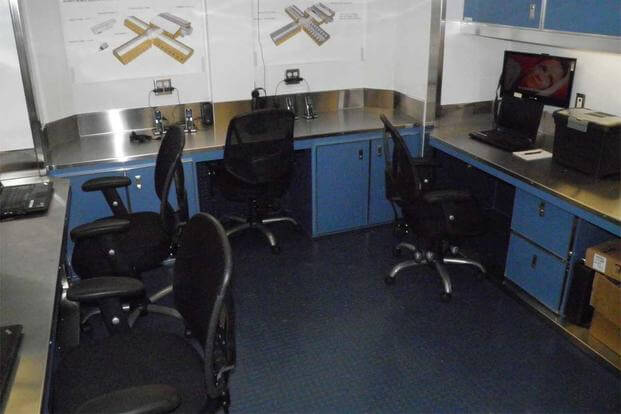Employers today recognize that building happy and effective teams isn't just about sourcing and recruiting, but also engagement and retention of key talent. Hiring a new employee is time consuming and expensive, and can be emotionally taxing on the team, negatively impacting morale and productivity. This is particularly true when the departing employee is a military veteran.
When hired onto the team, employees often rally around the veteran employee as they learn about and grow to appreciate the veteran's skills, talents, experiences, and character. Civilian employees often benefit by learning about the veteran's service background, ability to commit to a noble cause, resilience in the face of adversity, and unique leadership skills high-risk, high-stress culture.
In the past, employers tended to focus on veteran recruitment, rather than retention. A 2014 research report by RAND indicated: veteran employment efforts focus primarily on recruitment, with less effort committed to managing or retaining veteran employees.
Today, it's important for employers to understand and address the possible reasons for attrition of this workforce. We know that when that veteran leaves the team -- especially if the departure is sudden -- colleagues and managers might be left wondering, "What went wrong?" and "What could I have done to keep him or her on the team?"
Let's look at some of the commonly-shared reasons veteran employees leave their civilian jobs:
- Leadership issues. The leadership structure of the military is defined, structured and well-communicated. In any military situation or scenario, the leader is clearly identified, and those not leading are following instructions and orders.
In the civilian workplace, leadership is sometimes more fluid or ill-defined. Employees may assume leadership roles because they are more extroverted or vocal, and not because of enhanced skills, experience or ability. Responsibility and accountability also does not clearly follow the "leader" title in some companies, and leadership styles vary across industries, geography and company. For these reasons and others, the differences in leadership style and execution of duties can cause the veteran to feel disconnected to the mission of the team or a lack of support and endorsement for the style of the leader. - A better job. Not unique to veterans, but some employees leave because they found a better job, company or industry. Careers post-military are sometimes filled with trial and error: The veteran's skills, experience and background might not translate well to a civilian job, and therefore it might take a few jobs after their military career for the veteran to find their career path.
- The wrong hire. As with any hire, sometimes employers get it wrong. They hire someone who seemed great on paper, sold themselves well in the interview, or mislead the hiring manager on their interests and goals. Veteran hires are no exception to this situation. The difference for the hiring manager, sometimes, is the guilt associated with hiring someone seen as one of our Nation's heroes… and then having to let them go.
A proper exit interview with a veteran hire is helpful. Ask where the process broke down. What could have been asked early on to identify that this person wasn't a good fit? If there is a pattern of bad hires of veteran employees, that indicates a bigger issue. If there is not a pattern, then understand that it happens and move on. - The wrong job. In their anxiety to make a smooth transition to their civilian career, some veterans choose the wrong job or company. They hastily accept the first offer that affords them enough in compensation and they consider themselves "transitioned"!
In fact, in industries where veterans are unprepared or not trained for the duties they would need to perform at the job, instead of learning those skills, the employee leaves to find something better/easier/different. - Return to school. When separating from the military, service members many choices: They can pursue entrepreneurship, join a company or organization, retire, etc. Right out of uniform or after working for a while, many veterans decide to pursue or further their education before fully landing in a career. Under the terms of the GI Bill, veterans can take advantage of "full tuition & fees [reimbursement] at school, provide you with a monthly housing allowance while you are going to school, and [receive] up to $1,000 a year to use for books and supplies," providing they served on active duty for 90 or more days since September 10, 2001. This makes the opportunity to pursue a degree – or advanced degree – enticing.
- Overall job satisfaction. Whether it's a feeling of "not fitting in," or disconnect with the company values, or uninspired work, veterans often leave jobs because they aren't satisfied with their contribution or the environment of the company, and they seek other employment.
During their military service, a service member ties a lot of their duties (even the mundane, boring work) to a sense of values and service. The mission isn't always glamorous, but it is meaningful. When a company fails to tie the work of the employees to the overall mission, vision, and purpose of the company, employees tend to feel disconnected. For a veteran employee, this can often a job deal-breaker.
To build a sustainable and scalable veteran hiring strategy, it's important for employers to recognize the reasons veterans leave jobs, so they can proactively create systems for retention from the first day of onboarding.
About Lida Citroën
Lida Citroën, a branding expert based in Denver, has made a career of helping people and companies create new or enhanced identities. She is passionate about helping veterans learn how to compete for careers in the civilian sector. A TEDx Speaker, Lida presents her unique personal branding training programs across the U.S., at military installations and events, serves on the Board of Directors of NAVSO volunteers with ESGR, and has produced numerous programs and materials to help military veterans successfully transition after service. If you have a transition question Lida can help answer, email her at lida@lida360.com. She is also the author of the best selling book, "Your Next Mission: A personal branding guide for the military-to-civilian transition," available at www.YourNextMissionBook.com and on Amazon.





